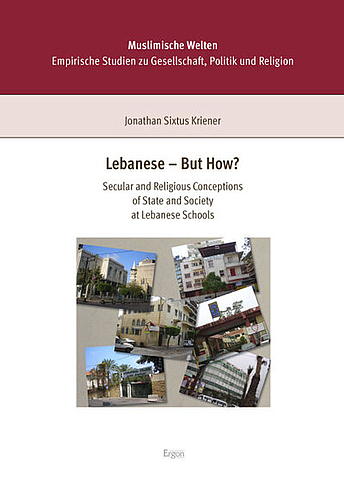Kriener
Lebanese - But How?
ISBN 978-3-89913-858-0
The Lebanese constitution and the Taif Accord, which ended the Lebanese civil war in 1990, envision the progressive abolishment of political confessionalism, which was intended to be Lebanon's political and legal system only for a short interim period after independence. In other words, Lebanon was originally, and officially still is, intended to become a secular democracy. How do schools in Lebanon, through their humanities instruction, prepare the young generation for participating in nowadays civil and political life, on the basis of the confessional distribution of power and unequal personal status laws? And how do they prepare them for participation in the envisaged secular system? These are core questions of the doctoral thesis Lebanese - but how? It compares two historical events crucial for Lebanon's identity, and two legal issues concerning Lebanon's political fabric as they occur in different party programs, in PR-publications of Lebanese schools, and in different school textbooks for history, civic, as well as religious education.



